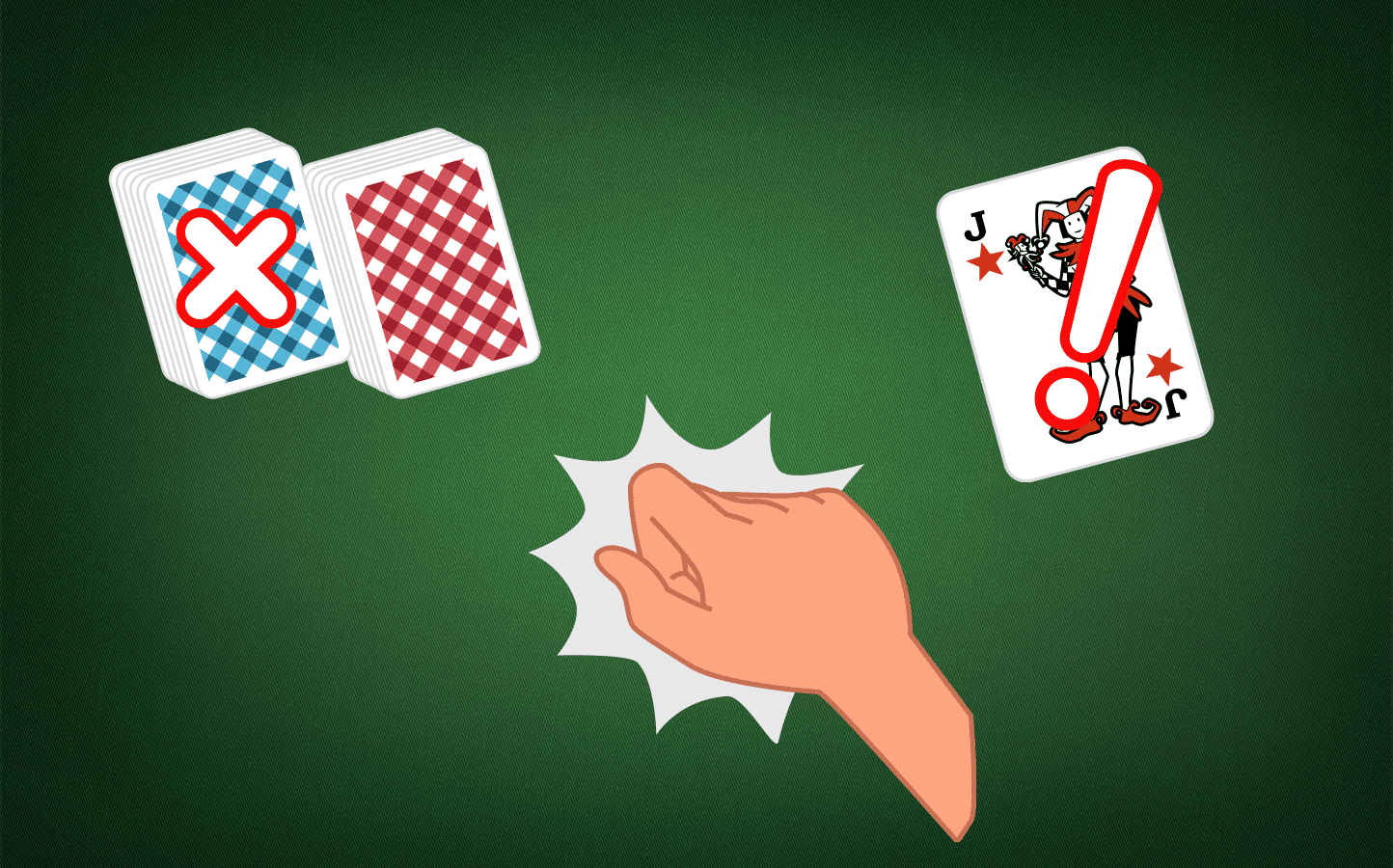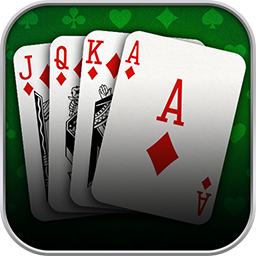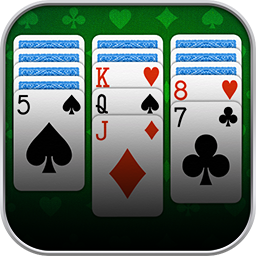Which Rummy variations do you know? Short deck, first meld with 40 points or no first meld at all, cyclic sequences, strict groups, knocking?
Not bad if you know all these Rummy terms! But there is a catch: Some of your fellow players will not be on that same page as you. The Rummy variation you have known all your life is not necessarily the standard everywhere, and might even be a thing of rarity. That is why it is so important to clarify which type of Rummy rules apply to your table before playing. A lovely evening with friends should not end in arguments, after all.
In this lesson, we dive into the different types of Rummy and the various custom rules that are available at the Rummy Palace, as well as some popular Rummy Variations you might not have heard of.
Which Basic Rules Apply at the Rummy Palace?
When you play Rummy online at our Palace, all players will see if and which custom Rummy rules apply to the table at the beginning. That way, we avoid misunderstandings.
Our basic game relies on the Rummy rules that are most common in Germany. That means 110 cards – 6 of which are Jokers – and two to four players. And each player starts with 13 cards in their hand.
Rummy variants come in many forms: They affect the utilized cards, start conditions, rules for playing cards, winning requirements, and finally, even the scoring. You can also combine many of these rules, which results in plenty of exciting game modes that we do not want to keep from you, of course! That is why you can choose from a multitude of custom rules at the Rummy Palace. Combine them to create the rule set you are used to, or try out new styles of playing Rummy.
How to Apply Custom Rummy Rules at the Rummy Palace
In the game, you will see the button “Create Table”, where you can select which rules are in place at your table if you have a Premium membership.
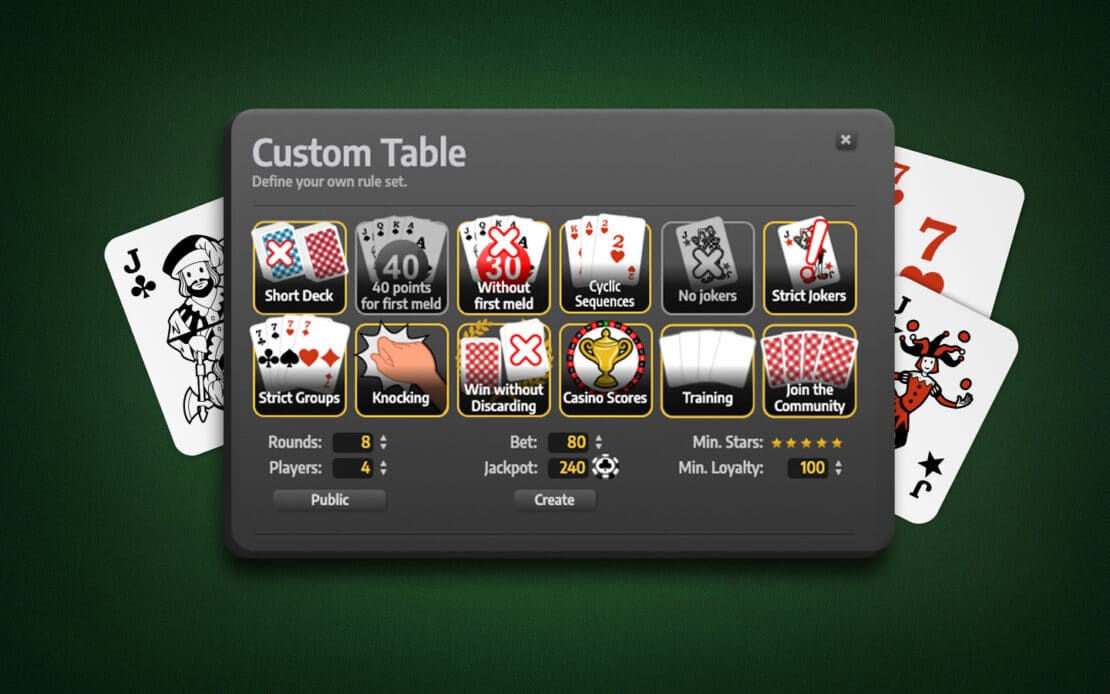
Of course, you can play at tables with active custom rules anytime without having a Premium membership, simply by joining. You can tell if a table at the Palace comes with custom rules by checking for the red fan of cards in the table list. Upon clicking the card fan, you will see a display of active custom rules and other table settings. When joining that table, you will see the table info once more before the game starts. And during play, you can check it whenever you want to, using the respective button at the screen margin.
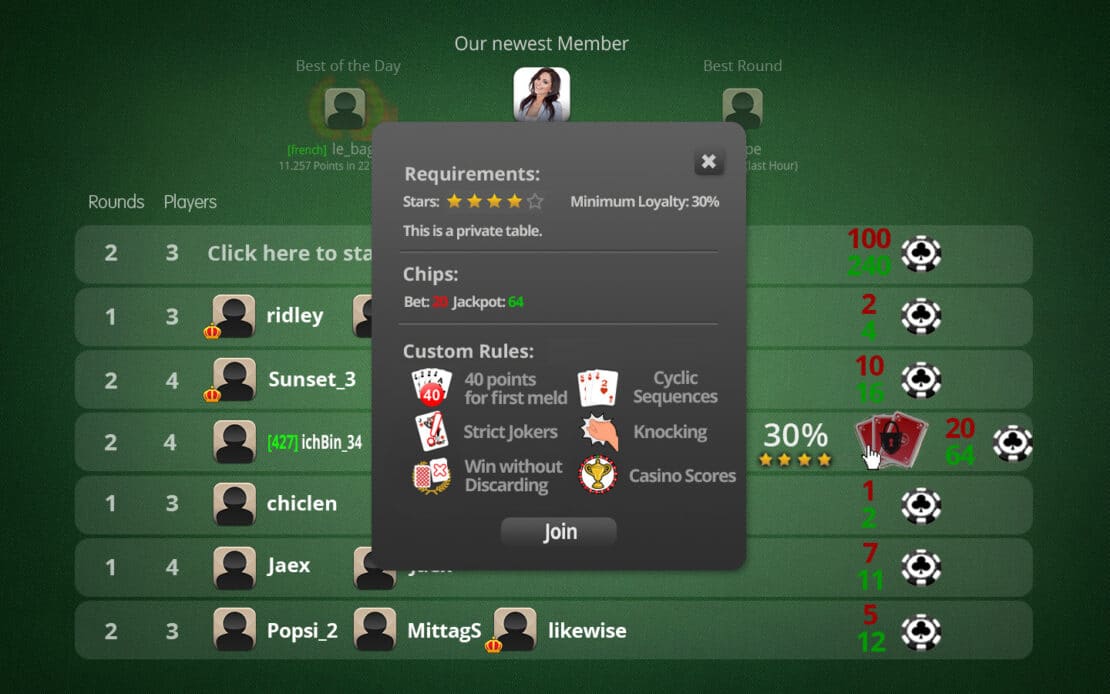
Which Rummy Variations Are Available at the Palace?
We will make our way through the Rummy variants at the Rummy Palace with the course of the game as a guideline. Even before the game starts, different preferences come up already!
Rummy Variations With Different Cards
With our basic Rummy rules, you are playing with two decks of French-suited playing cards and six additional Jokers. That means each of the 13 ranks (Two, Three, Four, Five, Six, Seven, Eight, Nine, Ten, Jack, Queen, King, Ace) occurs twice in each of the four Suits (Clubs, Spades, Hearts, Diamonds). That makes 104 cards, and after adding the Jokers, 110. With any number of players, each player receives 13 cards each. Some variations, however, rely on adaptions to the number of cards used in the game.
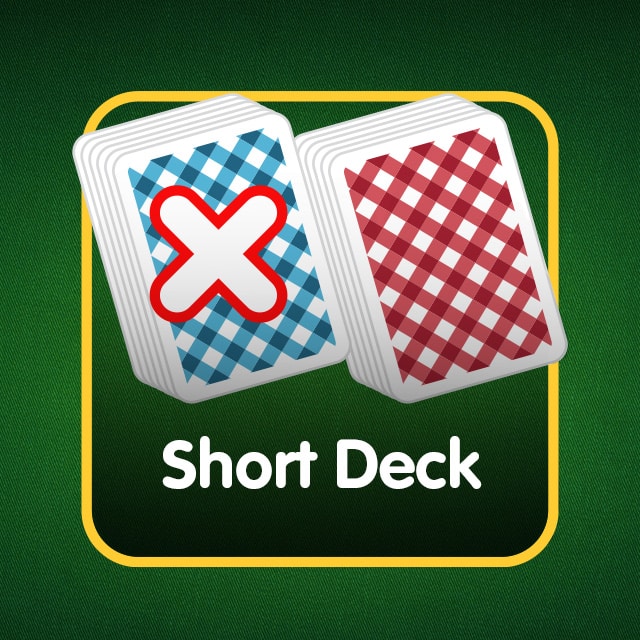
Short Deck
You are using only half the cards in this Rummy variation – one deck of French-suited Rummy cards, i.e., 52 cards and three Jokers. Thus, there are also fewer hand cards: Two players get ten each. When playing with more than two players, it is seven cards each. Additionally, there is no score threshold for the first meld.
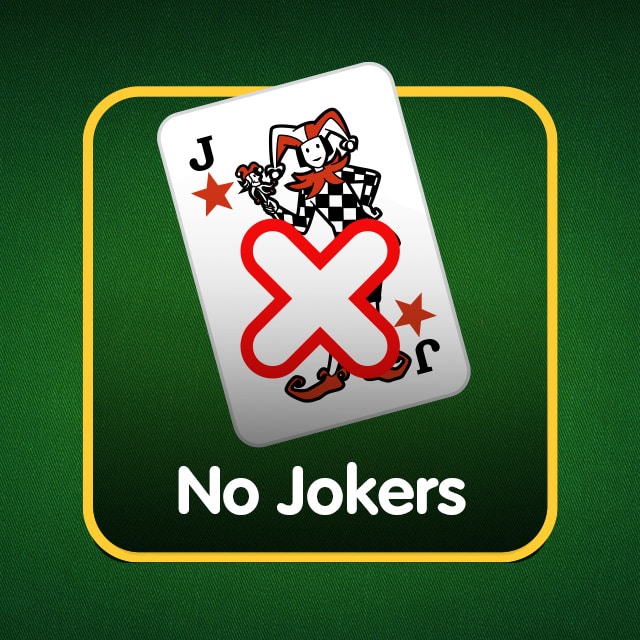
No Jokers
All Jokers are removed from the deck when using this custom rule. Instead of 110 cards, the basic game comes with 104 cards now. You can also combine this rule with Short Deck, which then leaves 52 cards in the game.
Rummy Variations With a Modified First Meld
After agreeing on the cards in use, it gets intense once more, as opinions differ on the value of the first meld. If you are not playing with a Short Deck, you can either raise the threshold for the first meld or leave it out entirely.
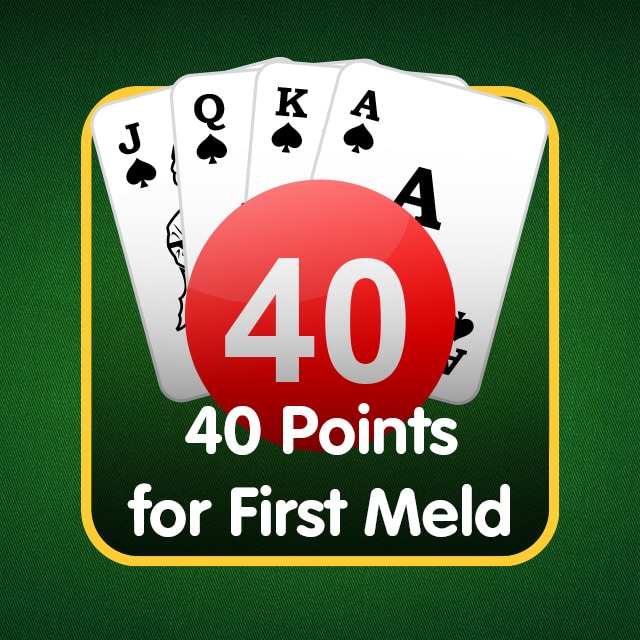
40 Points for First Meld
The score requirement for your initial meld of each round is raised from 30 to 40 points with this custom rule.
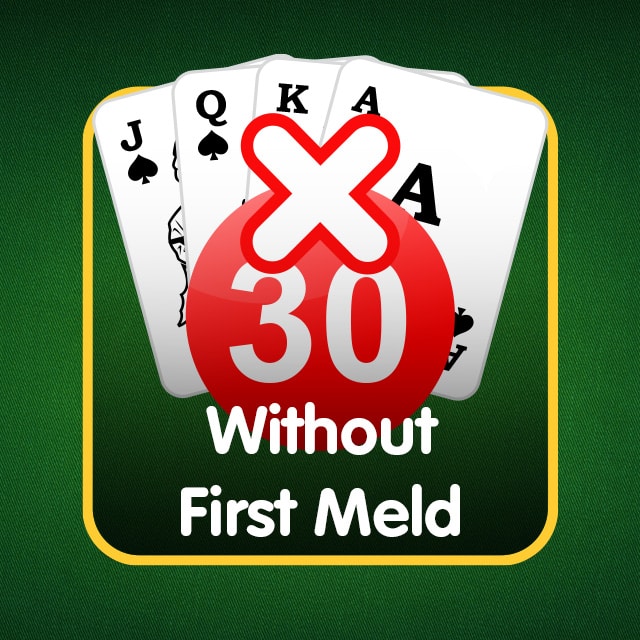
Without First Meld
There is no score requirement for the first meld of each round at this table.
Melding, Adding Cards, Drawing
Now, let us move on to the playing field: Without custom rules, groups can contain each suit only once and they are complete with four cards once no more Jokers are among them. The order of cards in a group is arbitrary.
Sequences consist of 13 cards at most. The Ace is either at the beginning (before the Two) or the end (following the King); it never lies between two other cards. You are relatively free when using the Jokers. The only restriction is, they cannot outnumber natural cards in any meld.
You receive new cards only by replacing a Joker or drawing a card at the beginning of your turn. Of course, there is plenty of room for variation!
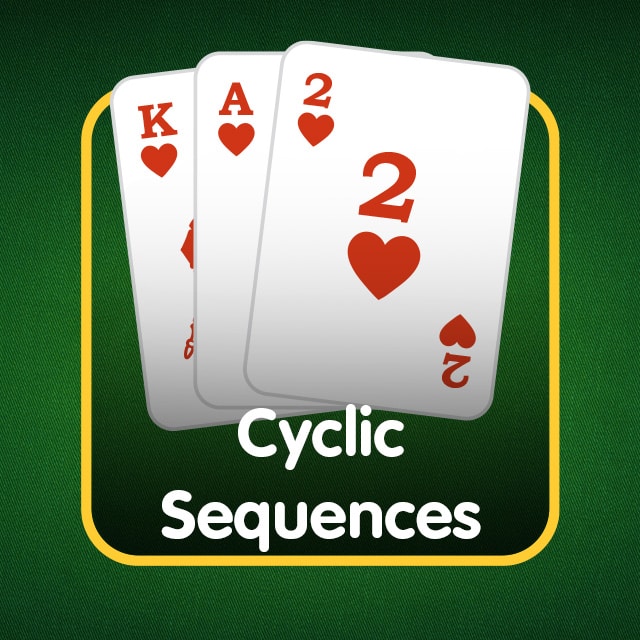
Cyclic Sequences
With this custom rule, the Ace can also sit between other cards in sequences – between the King and the Two. But sequences are still limited to 13 cards at most.
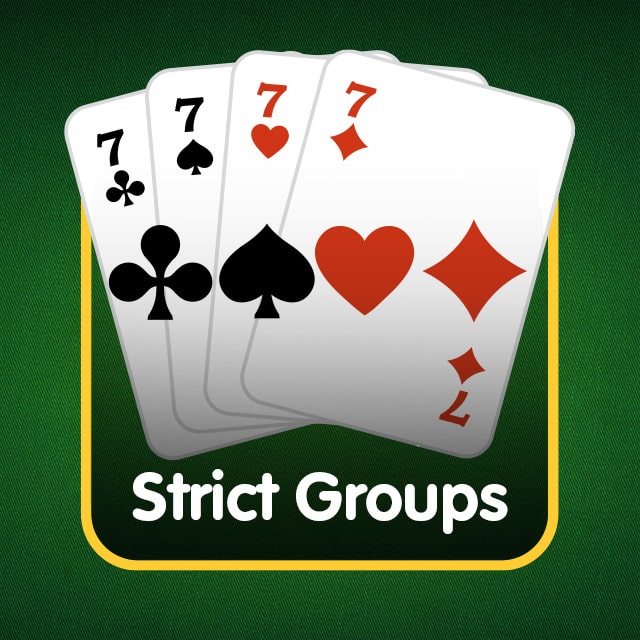
Strict Groups
Here, the order of suits in groups is specific: Clubs, Spades, Hearts, Diamonds must always be followed and cannot be interrupted. Thus, you need to pay extra attention when placing Jokers: Clubs – Joker – Hearts is allowed, as only Spades is missing, which is replaced by the Joker.
On the other hand, the sequence Joker – Clubs – Spades is not allowed, as Clubs is the first suit of the order. Hence, the Joker cannot replace any card before it.

Strict Jokers
In this variant, you can neither discard Jokers, nor have two consecutive Jokers in a meld. Before swapping a Joker in a group with your hand card, the group must be complete, i.e., contain four cards. And you must play swapped Jokers within the same turn. Immediately, the game gets trickier!
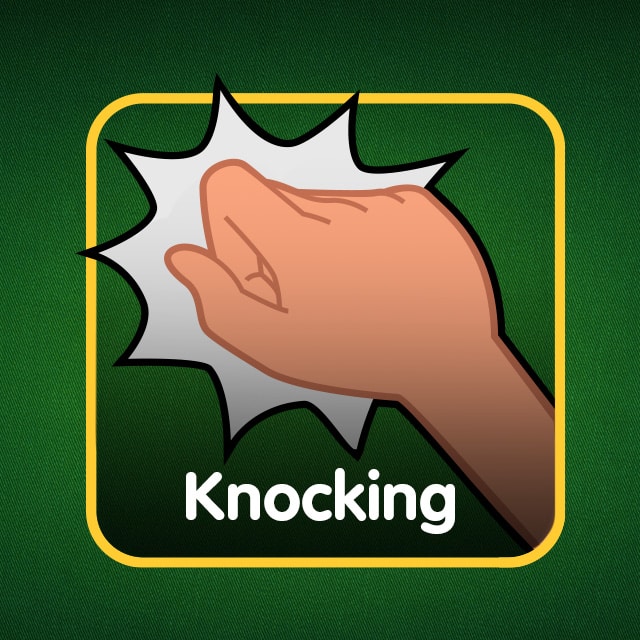
Knocking
With this highly popular rule, you can acquire more cards for more combinations: Even when it is not your turn, you can gain the last discarded card by knocking. Upon receiving the card, you must draw an additional card from the stock. The quickest player, the one who knocks or draws first, gets the card. Afterward, the next player in regular order can draw from the stock or the discard pile as usual. You cannot knock for a card you just discarded. Hence, this rule only makes sense with three and more players.
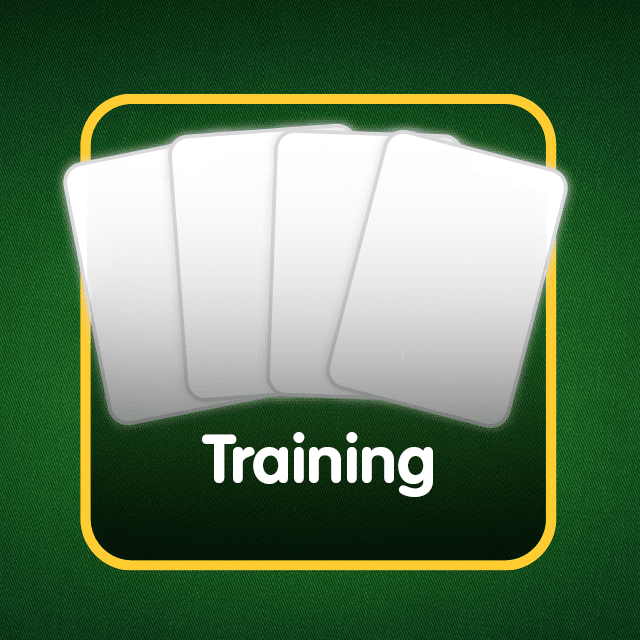
Training
This rule is the classic for practicing. With this custom rule, you are keeping any aspect of the game out of the league. That means, points you might gain here are not counted in the league, your rating will neither fall nor rise, and potential Chips are disregarded in the league. That way, you can learn how to play Rummy risk-free. Of course, you are still gaining experience points.
Variations on Ending a Round
We have reached the end of a round now. Here, you need to agree whether the last card should be discarded or placed on the playing field when finishing the game. And it would be best if you are scoring the remaining cards in the same manner, too.
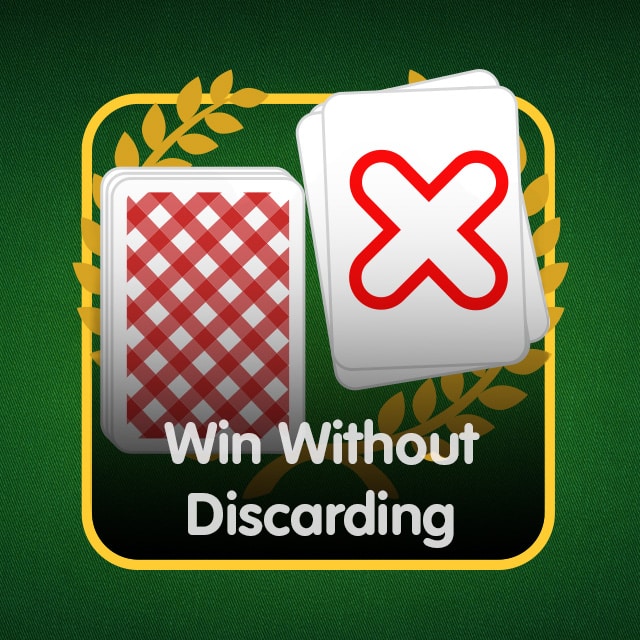
Win Without Discarding
To win, you usually have to discard the last hand card in our Rummy game. But with this custom rule, you can meld it or add it to a meld in the playing field, instead.
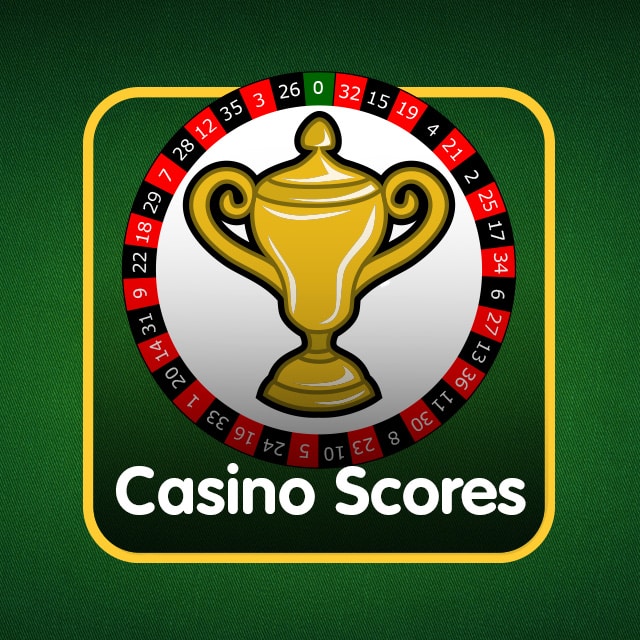
Casino Scores
You can find the scoring info for our basic Rummy version on our page about scoring in Rummy. The Casino Scores go about it quite differently:
- As usual, the opponents lose points equal to the values of their remaining hand cards.
- Like before, the winner gains points equal to the sum of all their fellow players’ hand card values.
- Additionally, the winner now receives points for all the cards they placed on the playing field.
- That score is evenly split among the other players as further penalty points.
The cards’ individual scores change as well: Jokers count zero points, pip cards from Two to Nine count five points, the Ten and face cards each count ten, the Ace 15, and the Queen of Spades scores 40 total points.
What Other Types of Rummy Are There?
The Rummy variations we covered already are just the ones available at the Rummy Palace. Beyond that, there are countless types of Rummy played around the world that some players favour over the classic version of Rummy. Let’s put a few of them in the spotlight now.
Gin Rummy
This is probably the most well known and widely played variation of Rummy. Gin Rummy is typically only played with two players, and players are able to signal the end of the round by knocking once the value of their remaining hand cards is below ten, unlike classic Rummy, where a player must discard their final hand card to end the round.
Find out more about the differences between Rummy and Gin Rummy, or give this variation a try and play Gin Rummy online at the Gin Rummy Palace!
Rummy 500
This Rummy variation gets its name from the objective of the game: to reach 500 points over multiple rounds to be named the winner. An alternative name is 500 Rum.
In this variation, scoring works differently. When a player gets rid of their last card, the round ends. At this point, the total value of each players’ hand cards is subtracted from the total value of their melded cards. The difference is then applied to their total score.
The other major quirk of this variation relates to the discard pile. A player may choose any card from the discard pile, not just the top card. But there’s a catch! You must also take every card above the chosen card in the discard pile, and you must use the chosen card immediately, either in a new meld or an existing one.
7 Card Rummy
As the name suggest, this type of Rummy is played with seven cards. 7 Card Rummy is typically played with one deck of cards, and it’s seen as one of the simpler variations. 7 Card Rummy can be a good place for complete beginners to start and get a feel for the game, before moving on to more complicated Rummy variations or custom rules.
Like in Gin Rummy, cards are arranged in hand, and you draw and discard a card each turn. But a player can only end the round once all their cards are melded.
Indian Rummy
Of the many variants of Rummy, Indian Rummy is probably the closest to the classic Rummy version played at the Rummy Palace. The only major deviation from the basic Rummy rules is that to win a round, you must have at least two runs, or sequences, and one of these runs must not contain a Joker: a so called pure sequence.
Pools Rummy
Pools Rummy is a popular variant of the game with a big twist when it comes to scoring. Unlike classic Rummy, where your goal is to have the highest score after the predetermined number of rounds has been played, the aim of the game in Pools Rummy is to keep your score low.
If you win a round of Pools Rummy, you receive zero points, while the losing players gain points equivalent to the total value of their hand cards. A player is eliminated if they reach a predetermined total number of points, usually 61, 101 or 201, and the last man standing wins! This makes Pools Rummy a very exciting and competitive game as players start to creep closer to the point of elimination.
Given the manifold variations of Rummy that have developed throughout history, an exhaustive list of all Rummy games would be endless and ever-updating! That’s why we are now leaving it at summarising the custom Rummy rules available at the Rummy Palace, as well as some of the more popular versions of the game played by Rummy lovers around the world.
Now, the choice is yours – wild combinations of custom rules for the most exciting game, or your usual settings. All options are open to you, so try them right away and play Rummy online at the Palace! If you would rather check out the standard rules in place at the Rummy Palace in detail, click and read our Rummy manual.
